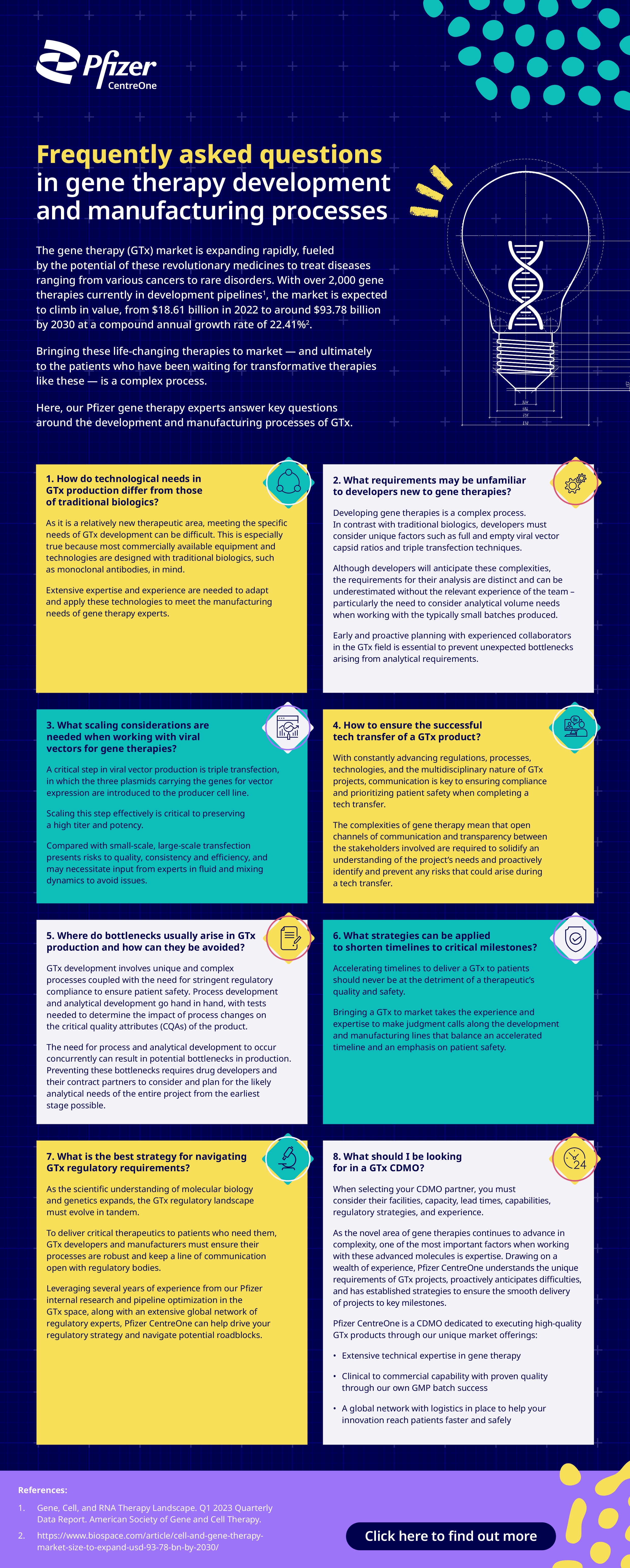Process development
Your gene and cell therapy is innovative and needs the right process development methods and analytical requirements to support this.
At Pfizer CentreOne we understand the importance of the right processes in meeting your critical development milestones.
This is why your innovation will have the development support of not only our 70+ US based scientists, but also a global network of analytical and quality control engineers, as well as regulatory experts who can support you along your journey.









